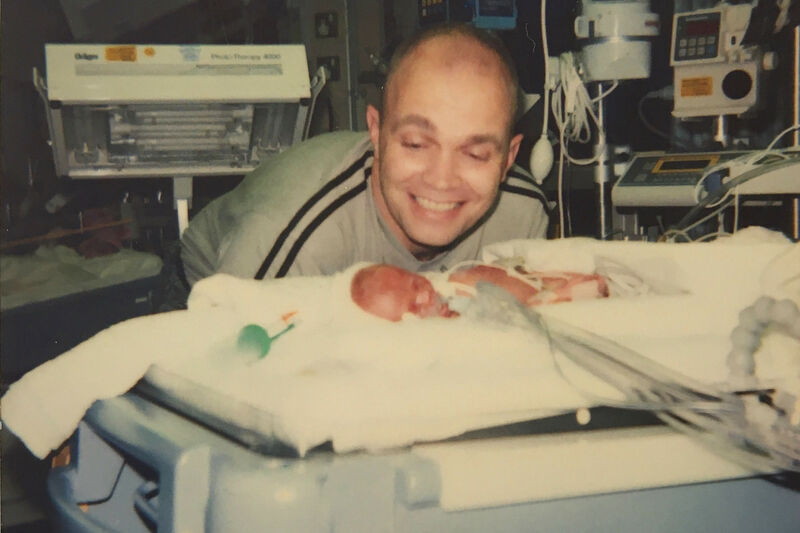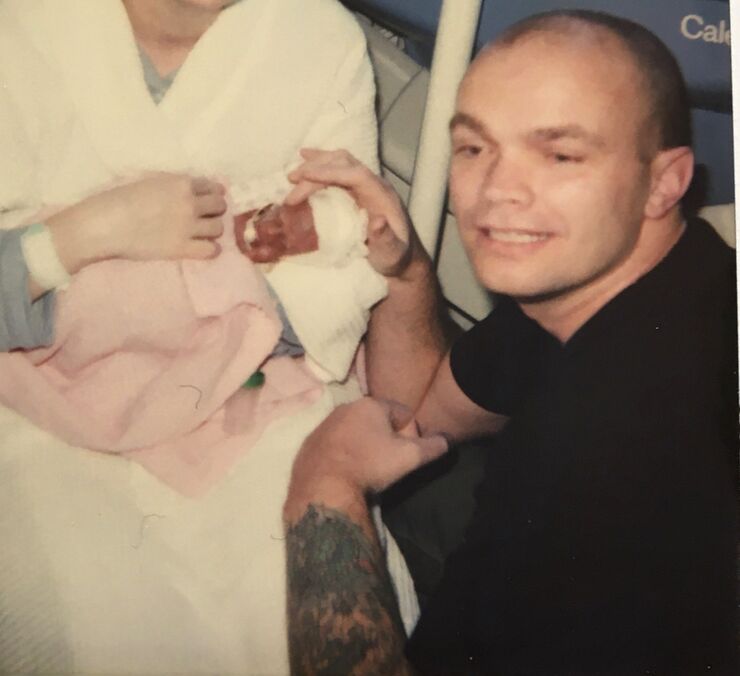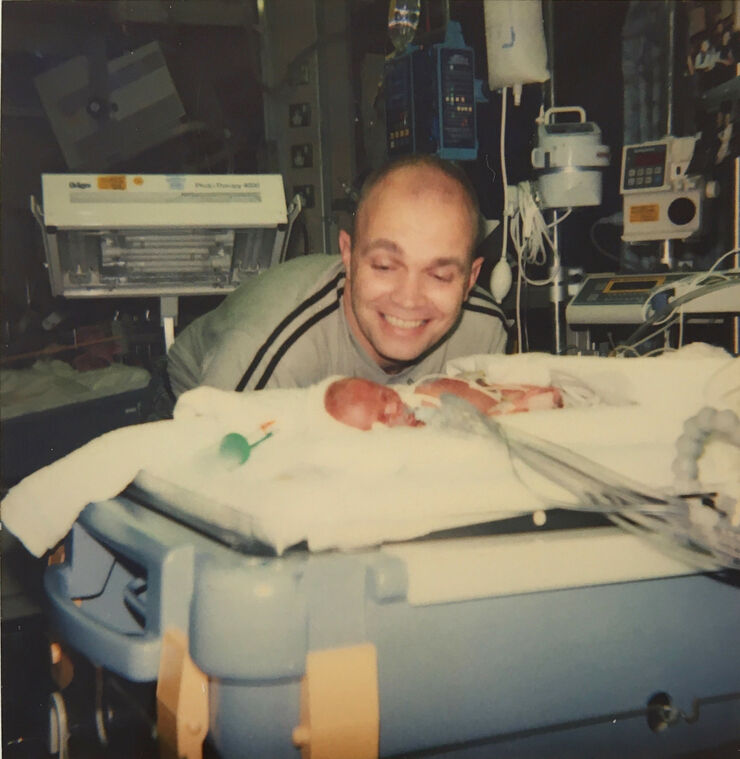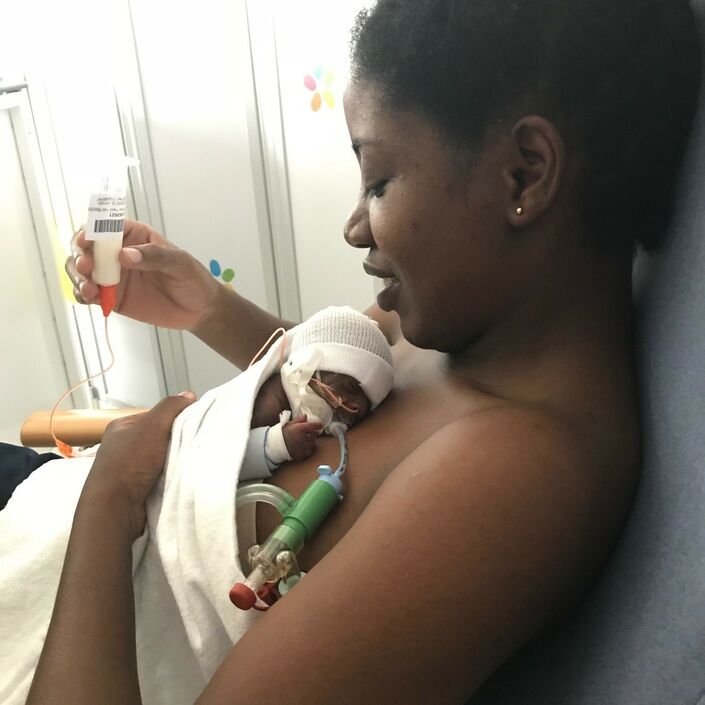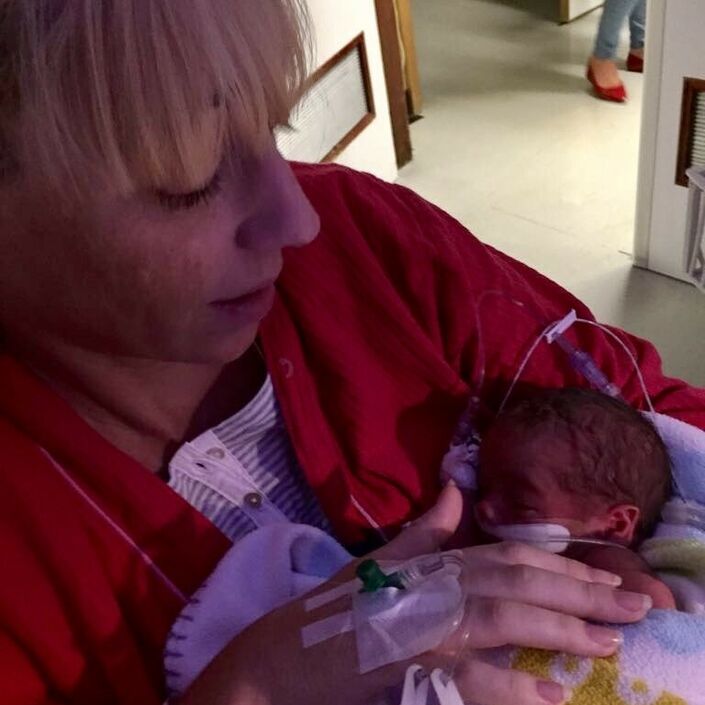No parent should have to go through losing a child. Yet, I lost both of my twin daughters in October 2003, three and a half weeks apart. My loss may have taken place 17 years ago, but it took me 14 years to properly start grieving. I hope sharing some of my story here will help those who are going through or have been through a similar experience to express their grief instead of bottling it up.
In early 2003, Michelle, my wife of three years, walked towards me as I came through the door from work, holding a gold box I hadn’t seen before. Inside, a pregnancy test showed ‘positive’. We were so happy because, after trying for so long, we thought we wouldn’t be able to have children naturally. We had a scan just before Michelle was 12 weeks pregnant because she was having some pain. Two babies’ heartbeats appeared on screen - two babies! After all this time trying for one, we were given two. God was definitely shining down on us that day.
But as quickly as the joy arrived, came fear. The medics suspected that one twin might have Down’s Syndrome and they were investigating the possibility of Twin-to-Twin Transfusion Syndrome (TTTS). I’d heard of Down's Syndrome but had no clue what TTTS was. All I knew was that it wasn’t good.
We were referred to the Fetal Medicine Department at Birmingham Women’s Hospital where we found out that neither twin had Down’s Syndrome but it was confirmed they had TTTS. Our way of life changed completely from then on as Michelle had to have scans at least twice a week.
TTTS is a serious condition where the blood flows unevenly through the placenta so one twin gets too much and the other too little, which has major consequences for both: the first gets high blood pressure and the other becomes dehydrated. Today, the condition is more easily corrected with laser treatment but in 2003, Michelle had to have serial amniodrainages to keep the twins alive and to stop her from going into early labour. I could only look on, feeling helpless, not knowing what to do.
Each hospital visit came with news about their health – most of it not positive – and that was hard to keep hearing. But what were we to do? The love I felt for them was all-consuming and very real, even though I had only seen them on the monitor of the scanning equipment. I just held onto the hope that they’d turn a corner. I needed them to.
At a scan when Michelle was nearly 29 weeks pregnant, the atmosphere in the room was more charged than usual. We were told the twins needed to be born that very day. I went through every emotion - one emotion jumping on top of the next. To add to that shock, there were no neonatal cots available at Birmingham Women’s Hospital or any other hospital in the city. So, we were going to be transferred by ambulance to Royal Shrewsbury Hospital, 60 miles away. It was in the ambulance that we decided to name our little girls Alana and Dana.
